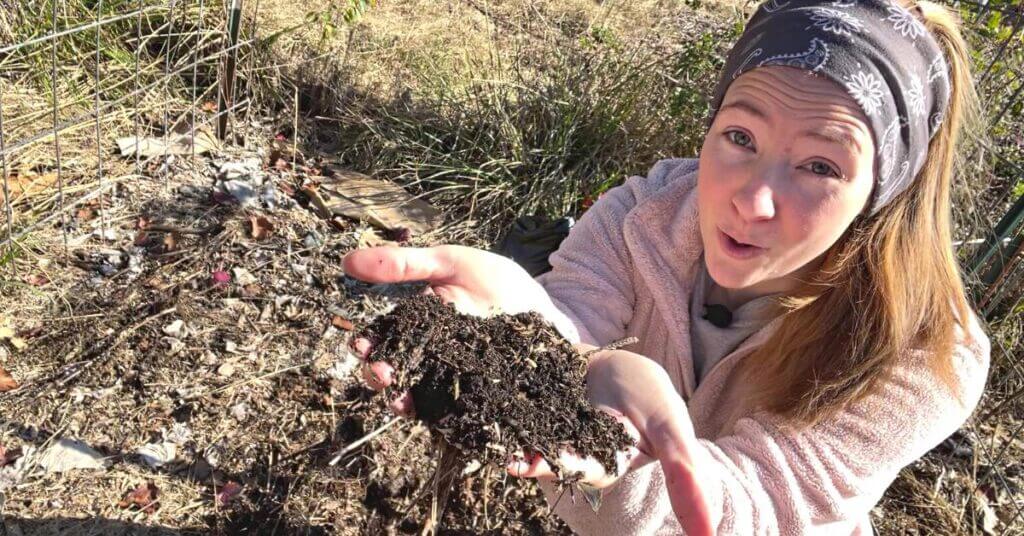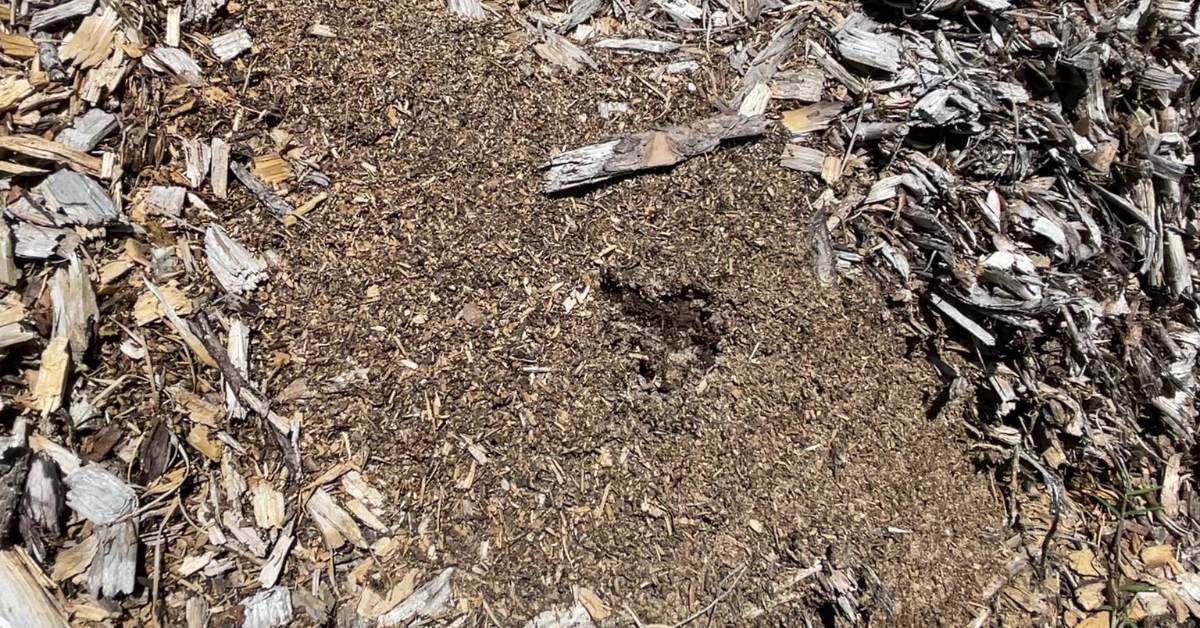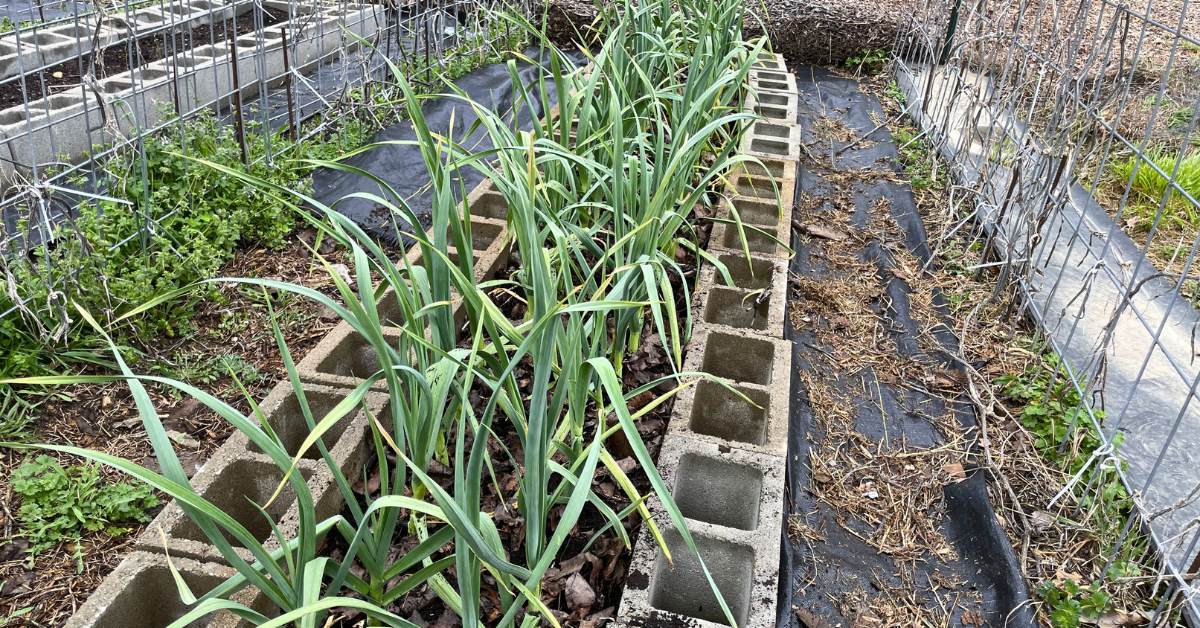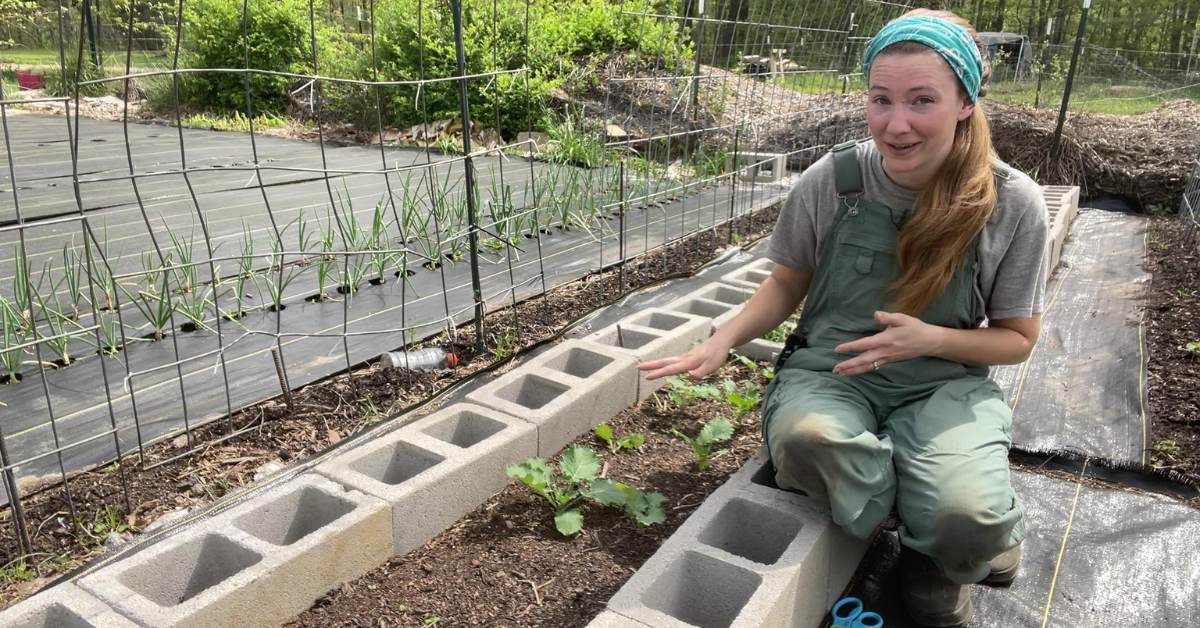In the realm of gardening, there’s a secret that’s been quietly whispered among those in the know—an effortless way to turn mundane leaves into nutrient-rich soil without breaking a sweat or the bank.
Join us as we dig into the world of free composting where a surprising household item becomes a vessel of transformation to accelerate the natural process of decomposition.
The Basics of Fast Composting
If you’ve imagined transforming your backyard into a lush haven, composting will hasten this transformation.
But, if you want compost FAST, you’ll need specific conditions to foster rapid decomposition. Heat, moisture, and the right mix of organic matter play critical roles.
For the method discussed below, we’ll use sunlight as a catalyst, warming the compost pile and speeding up the breakdown of materials like leaf mulch and kitchen scraps.
Gathering Your ‘Gold’: Sourcing Free Leaves
In the quest for nutrient-rich soil, your first mission involves harvesting autumn’s bounty.
October through December marks a prime time for leaf gathering. As trees shed their foliage, suburban streets become lined with what could become the foundation of your garden’s success next spring.
Sourcing leaves is both an eco-friendly gardening hack and an exercise in sustainable living.
Arm yourself with a sense of adventure and a pickup truck, van, or trailer. Many homeowners neatly bag their fallen leaves and place them at the curb for trash collection.
These bags, filled with potential organic matter for your compost, are there for the taking.
This method of recycling leaves not only saves them from the landfill but also gifts you with free compost material!
By embracing this simple DIY compost approach, you can foster rich soil health without the burden on your wallet.
Setting Up Your Compost
Now it’s time to transform this simple, organic matter into black gold.
First, find a sunny spot in your garden. This location is crucial as it will fast-track the composting process. Ensure this area receives ample sunlight for the majority of the day.
Next, prepare your bags. If not already secured, tie them tightly. This action prevents any unwanted openings that might disrupt the process. Arrange these bags neatly in your chosen sunny area.
The black plastic will absorb heat, accelerating the leaf mulch’s transformation into nutrient-rich soil.
If you need your compost ultra-fast, you can spray the leaves with fish fertilizer to jumpstart the decomposition process even further.
Prices pulled from the Amazon Product Advertising API on:
Product prices and availability are accurate as of the date/time indicated and are subject to change. Any price and availability information displayed on [relevant Amazon Site(s), as applicable] at the time of purchase will apply to the purchase of this product.
The Waiting Game: Decomposition Process
Patience and timing are pivotal. The black gold takes time to form. By waiting through the colder months, you ensure a bounty of nutrient-rich soil ready for spring planting.
You can reasonably expect to have usable compost within 4 months. That said, you can potentially shorten that to 3 months if you spray the leaves with fish fertilizer first.
To put that timeline in perspective, other methods of composting, especially those that involve “fresh” kitchen scraps can take a year or more to decompose thoroughly.
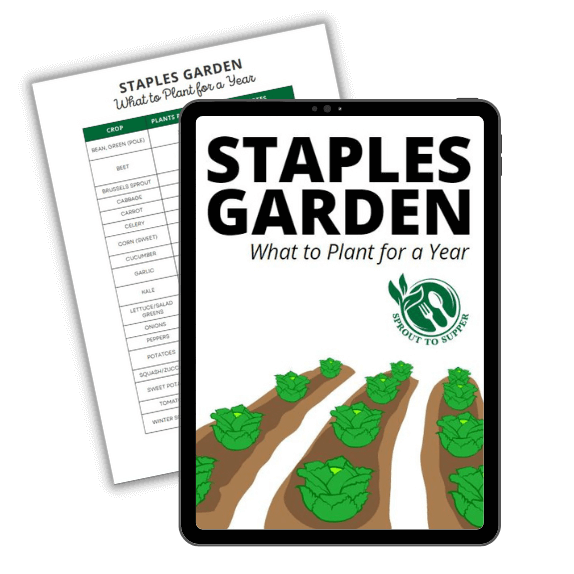
Dream of Filling Your Pantry with Homegrown Staples?
Plan your garden with our FREE PRINTABLE—Staples Garden: What to Plant to Feed Your Family for a Year!
From Leaf to Feast: Using Your Compost
Now that your leaf mulch has transformed into nutrient-rich compost, this organic matter stands ready to rejuvenate your garden soil.
To apply this compost to your garden beds, simply mix into the top 3-4 inches of your existing soil before planting.
You can also mix it into your existing potting mix if growing in containers or raised beds. In fact, this is a wonderful way to rejuvenate old potting mix, so you don’t necessarily need to throw out last year’s mix!
We hope this guide helps you create homemade compost fast in time for spring planting!


